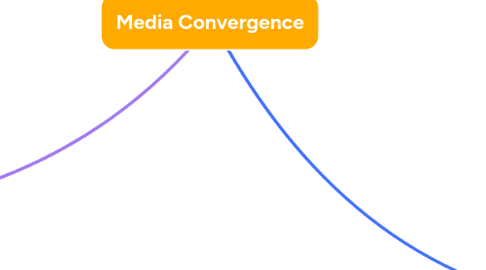
1. Educational Implications
1.1. "There is nothing organic about today’s media-dominated world" (University of Minnesota Libraries Publishing, 2010, p. 22).
1.1.1. A new skill emerged - from traditional literacy to digital literacy.
1.1.1.1. Just like "the implementation of new technologies doesn’t mean that the old ones simply vanish into dusty museums" University of Minnesota Libraries Publishing, 2010, p. 20).
1.2. "Aspects of the new digital model of media consumption: participation and multitasking" (University of Minnesota Libraries Publishing, 2010, p. 23).
1.2.1. A shift from actively multi-tasking, not passively viewing
1.2.1.1. Considerations
1.2.1.1.1. "Multitasking makes us do a greater number of things poorly. (Carr, 2010, as cited in University of Minnesota Libraries Publishing, 2010, p. 23).
1.2.1.1.2. "Internet is eroding attention spans and making contemporary minds distracted and less capable of deep, thoughtful engagement with complex ideas and arguments" (Carr, 2010, as cited in University of Minnesota Libraries Publishing, 2010, p. 23).
2. What is it?
2.1. Interconnection of:
2.1.1. Media Technologies
2.1.2. Industries
2.1.3. Content
2.1.4. Audiences
2.2. A merge of separate platforms like technology and media. "The process by which previously distinct technologies come to share tasks and resources" (University of Minnesota Libraries Publishing, 2010, p. 20).
2.3. Media Theorist: Henry Jenkins
2.3.1. Not just technology
2.3.2. Not an end result - but a **process** that alters the consuming and producing of media
2.3.2.1. 5 Processes of Convergence
2.3.2.1.1. Technological Convergence
2.3.2.1.2. Economic (Industrial) Convergence
2.3.2.1.3. Social/Organic Convergence
2.3.2.1.4. Cultural (Textual) Convergence
2.3.2.1.5. Global (Political) Convergence
3. Conclusion
3.1. No ultimate and final convergence, always updating and improving, brings competition leading to innovation.
3.2. Many advantages and disadvantages from media convergence, long-term effects on education and therefore society, are unclear.
3.3. **Embrace it - don't replace it.** Both traditional and digital literacies converge - not replace each other.
3.3.1. Both have a level of importance in education, foundational skills versus the skills to quickly adapt to the digital renaissance.
